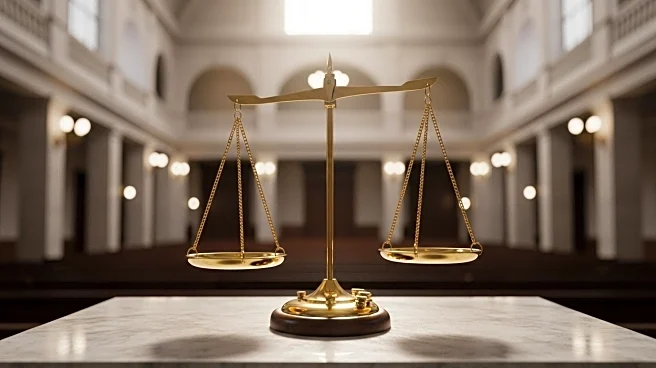What is the story about?
What's Happening?
Justice Amy Coney Barrett has emphasized that Supreme Court rulings should not be seen as opinion polls, as the court considers a request to overturn the legalization of same-sex marriage. Barrett, in her first television interview since joining the Supreme Court in 2020, stated that the court should not impose its values on the American people, but rather reflect the democratic process. Her comments come as the court faces a request from Kim Davis, a former Kentucky county court clerk, to overturn the 2015 Obergefell v Hodges ruling that recognized same-sex marriage as a constitutional right. Barrett's remarks were made during an interview with CBS News Sunday Morning, promoting her new book, 'Listening to the Law: Reflections on the Court and Constitution'. The book discusses her views on various rights, including marriage and abortion, and critiques the Roe v Wade decision for usurping the will of the American people.
Why It's Important?
Barrett's statements highlight ongoing debates about the role of the Supreme Court in shaping social policy and its impact on American society. The potential overturning of the Obergefell decision could have significant implications for same-sex couples across the U.S., affecting their legal rights and societal acceptance. Barrett's views reflect a broader conservative approach to judicial interpretation, emphasizing the court's role in reflecting public consensus rather than leading social change. This perspective could influence future rulings on contentious issues such as marriage equality and abortion rights, potentially shifting the legal landscape and affecting millions of Americans.
What's Next?
The Supreme Court's decision on the request to overturn same-sex marriage rights will be closely watched, with potential ramifications for state laws and individual rights. Stakeholders, including LGBTQ+ advocacy groups and political leaders, are likely to respond strongly to any changes in the legal status of same-sex marriage. The court's ruling could also set a precedent for how other social issues are addressed, influencing public policy and legal interpretations in the future.
















